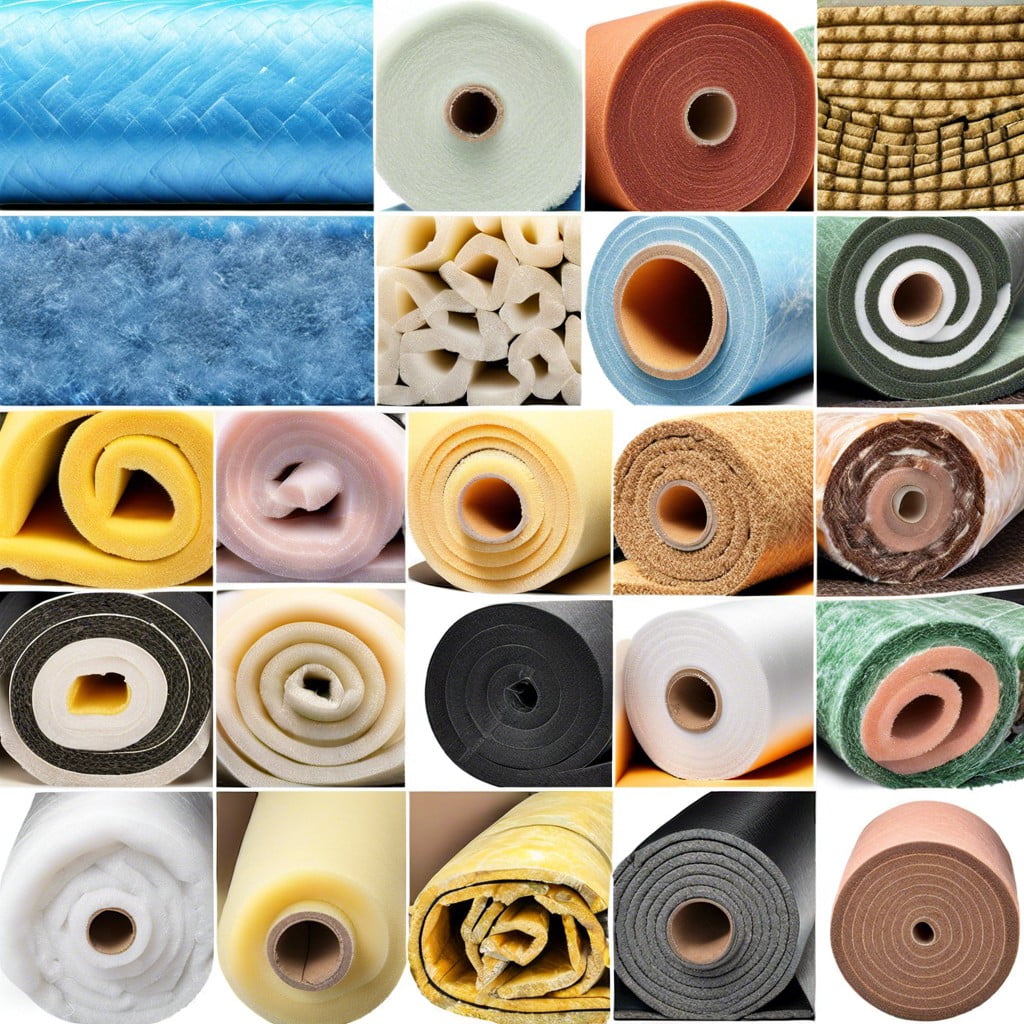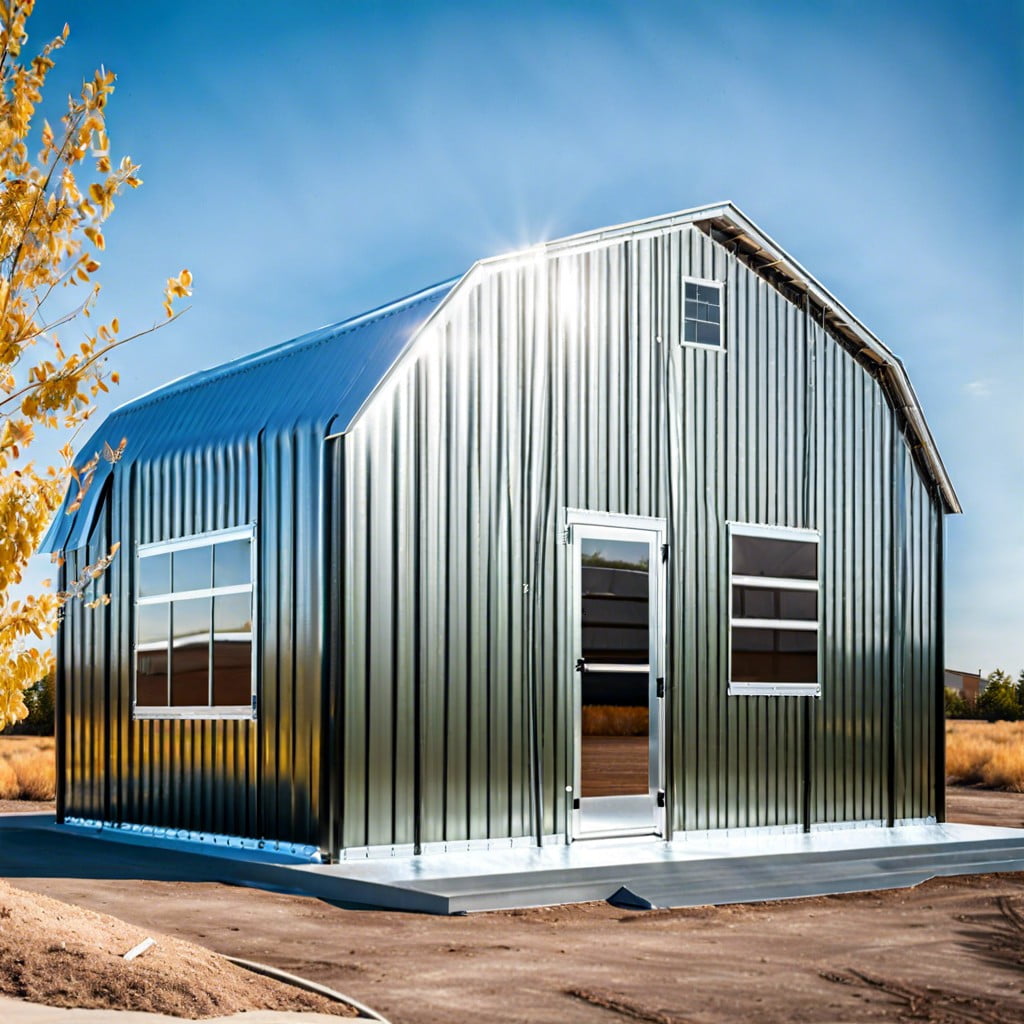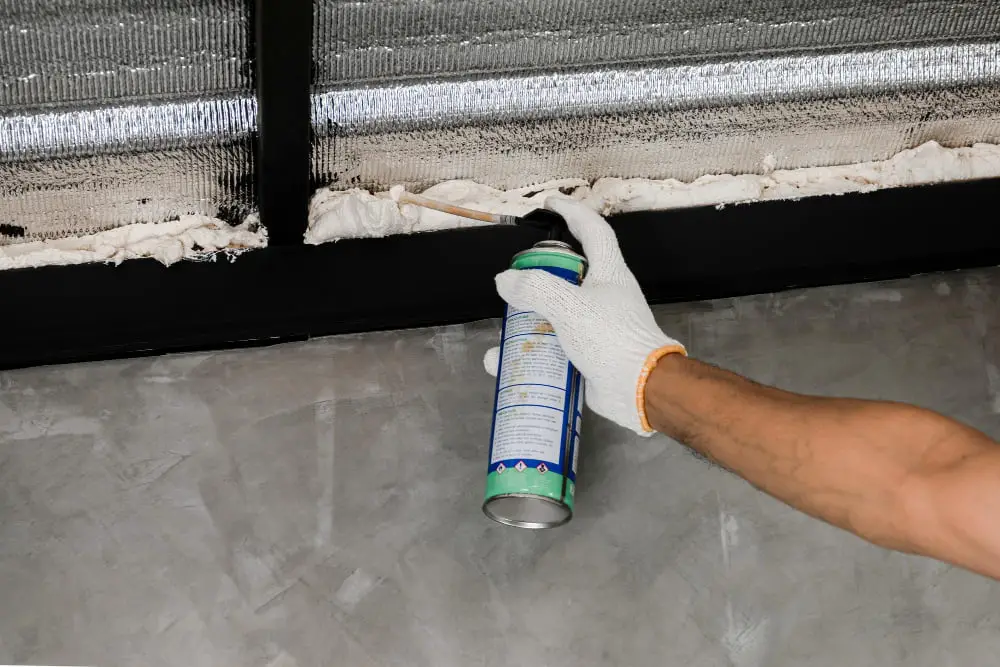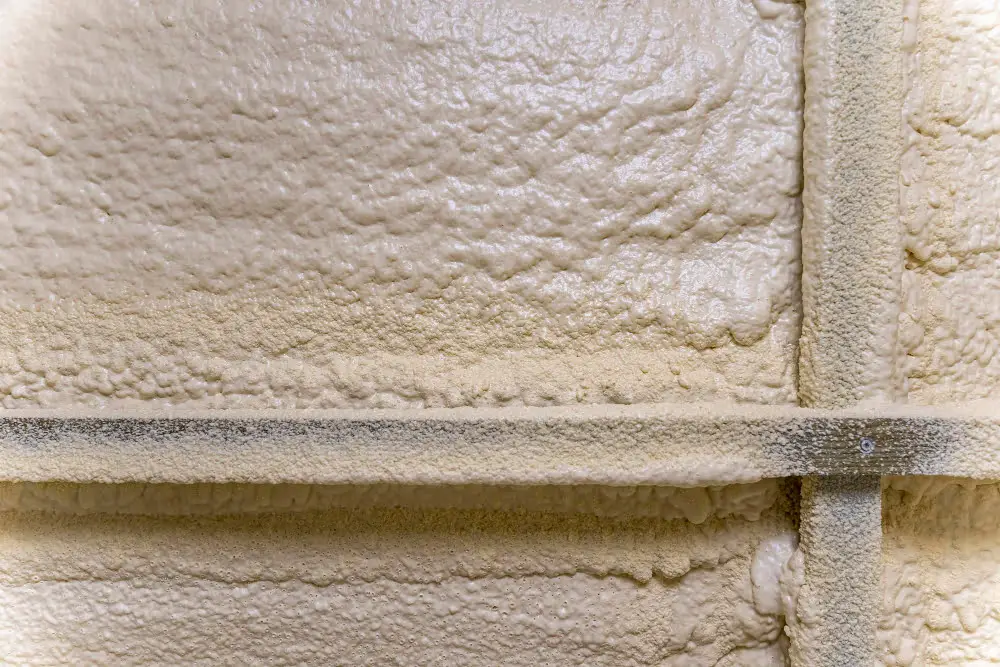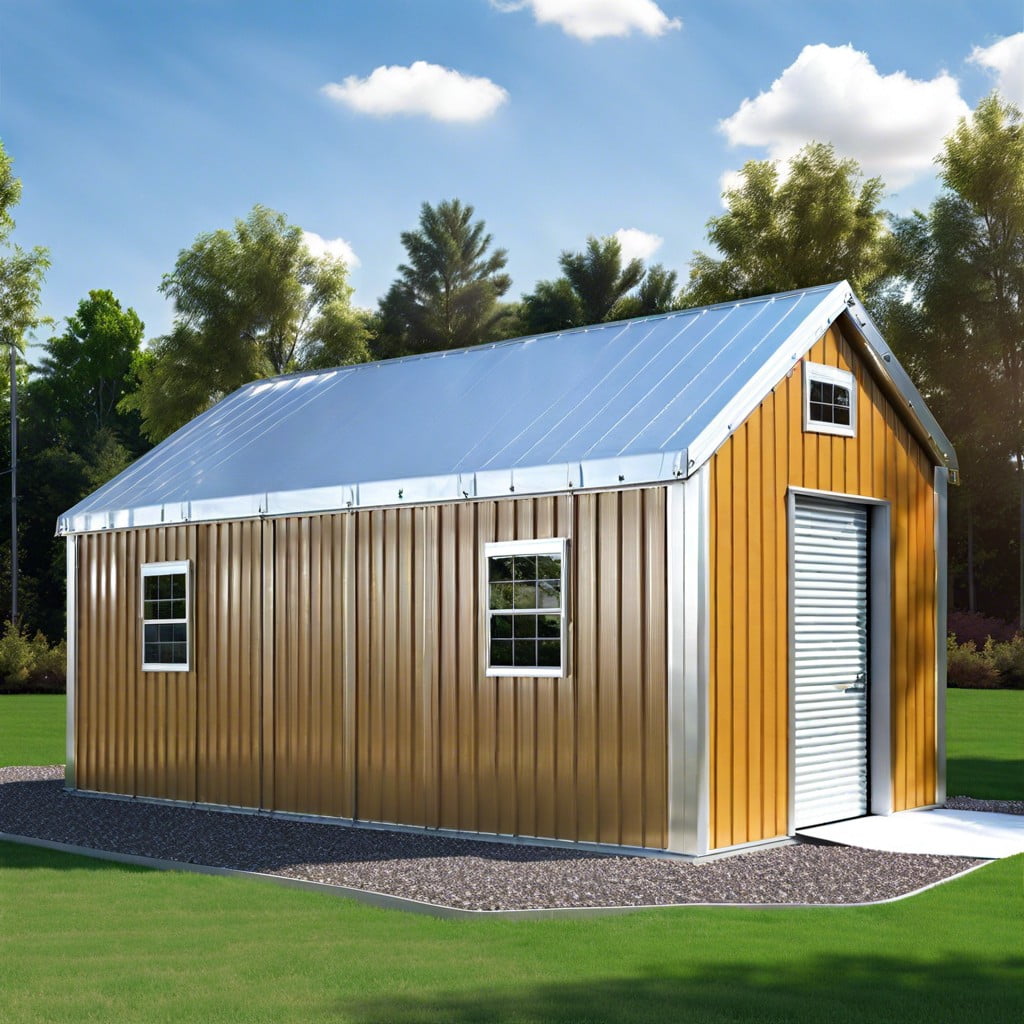Protect your building from moisture and heat loss with waterproof polymer insulation – learn how in this informative article!
It was a cold and rainy day when I received a call from a client who was facing a major problem with their building. The walls were damp, the floors were wet, and the tenants were complaining about the unbearable living conditions.
As an expert in the construction industry, I knew exactly what had gone wrong. Moisture had seeped into the building’s insulation, causing it to lose its effectiveness and leaving it vulnerable to heat loss.
This is not an uncommon problem in buildings that are not adequately insulated. Traditional insulation materials such as fiberglass or cellulose can be easily compromised by moisture infiltration over time. This leads to mold growth, structural damage, and increased energy bills.
But there is a solution that can prevent these problems from occurring: waterproof polymer insulation. In this article, we will explore how this innovative material can safeguard your building against moisture infiltration and heat loss while providing other benefits as well.
Key takeaways:
- Waterproof polymer insulation protects buildings from moisture infiltration and heat loss.
- It is made from resistant polymers and is effective in high-humidity or rainy areas.
- Waterproof polymer insulation can be sprayed onto surfaces for easy installation.
- It reduces energy costs and improves thermal performance.
- Waterproof polymer insulation is durable, low maintenance, and eco-friendly.
Waterproof Polymer Insulation Overview
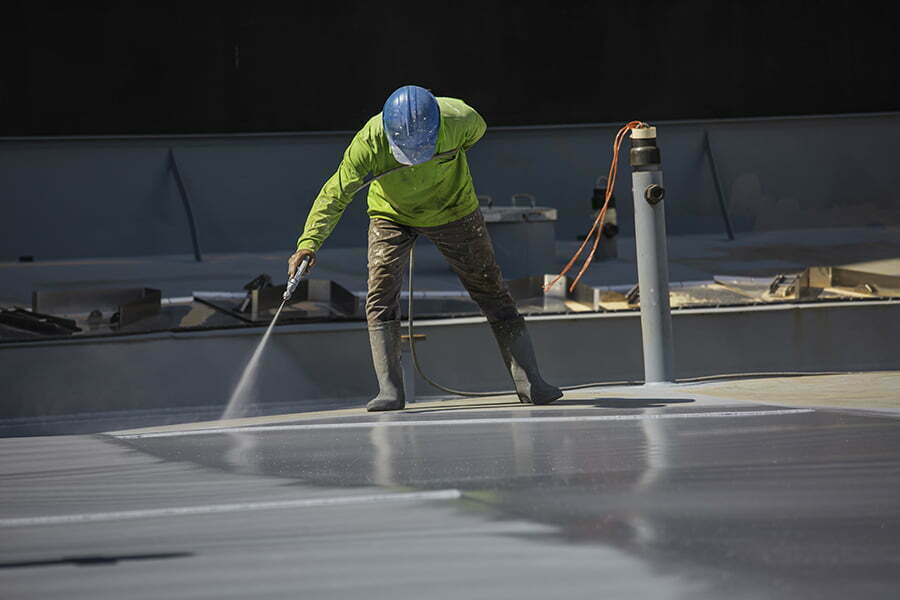
Waterproof polymer insulation is a relatively new type of insulation material that has been gaining popularity in recent years. It is made from a combination of polymers and other materials that are designed to be resistant to moisture infiltration, making it an ideal choice for buildings located in areas with high humidity or frequent rainfall.
When I suggested waterproof polymer insulation as a solution to my client’s problem, they were skeptical at first. They had never heard of this type of insulation before and were unsure if it would be effective.
However, after explaining the benefits and showing them examples of successful installations, they agreed to give it a try.
The installation process was quick and easy compared to traditional methods since the material can be sprayed onto surfaces using specialized equipment. Once installed, we tested the building’s thermal performance using infrared cameras which showed significant improvements in heat retention compared with their previous fiberglass-based system.
Not only did waterproof polymer insulation solve my client’s moisture problems but also helped reduce their energy bills by up 30%. This innovative material provides excellent thermal resistance while being lightweight yet durable enough for long-term use without any maintenance required.
If you’re looking for an effective way to safeguard your building against moisture infiltration while reducing energy costs simultaneously – consider investing in waterproof polymer insulation today!
Moisture and Heat Loss Prevention
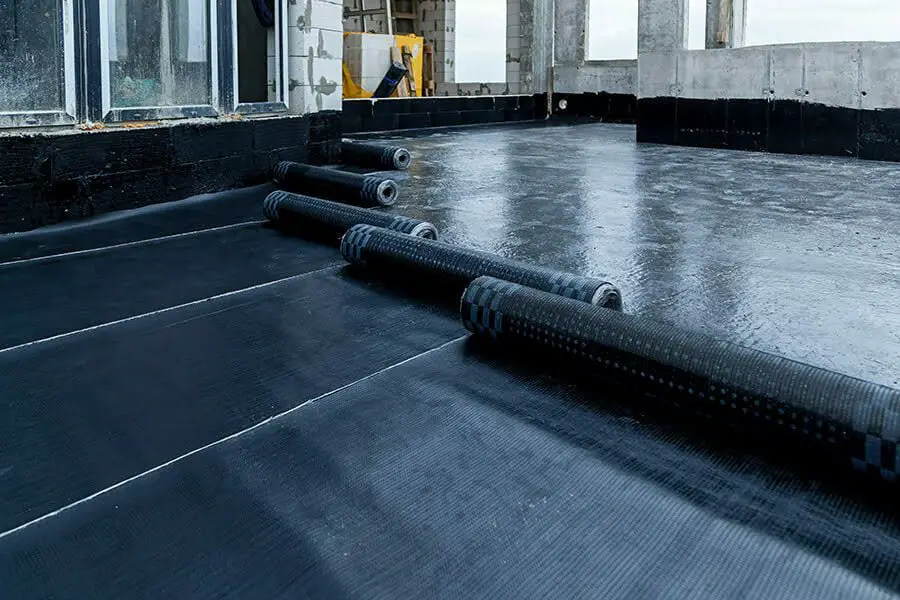
Moisture infiltration and heat loss are two of the most significant problems that buildings face. They can cause a range of issues, from structural damage to increased energy bills.
As I arrived at my client’s building, I knew that we needed to act fast to prevent further damage. That’s when I recommended waterproof polymer insulation as a solution.
This innovative material is designed specifically for moisture-prone areas such as basements, crawl spaces, and attics where traditional insulation materials often fail. Waterproof polymer insulation creates an impermeable barrier against moisture infiltration while also providing excellent thermal resistance properties.
It prevents mold growth and protects the structure from rotting or deteriorating due to water exposure. Moreover, it helps reduce heat loss by creating an air-tight seal around your building envelope which keeps warm air inside during winter months while keeping cool air in during summer months – ultimately reducing your energy bills!
Waterproof polymer Insulation is effective in preventing moisture infiltration and provides excellent thermal resistance properties which help reduce heat loss resulting in lower energy costs!
Types of Waterproof Polymers
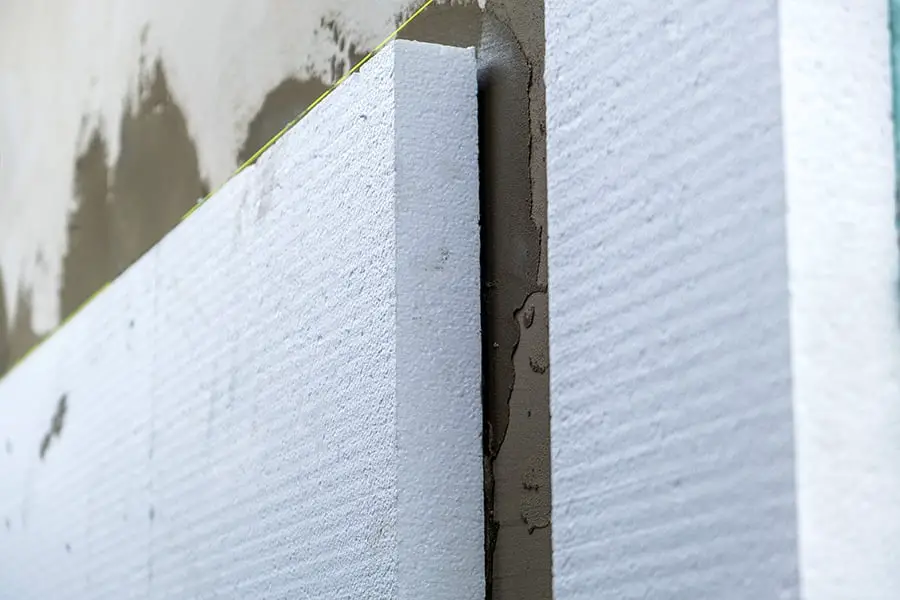
There are different types of waterproof polymers available, each with its own unique properties and benefits.
One type of polymer is polyurethane foam insulation. It is a closed-cell foam that provides excellent thermal resistance and moisture protection due to its low permeability rating.
Polyurethane foam can be sprayed onto walls or roofs as a liquid which then expands into a solid form, filling every nook and cranny for an air-tight seal.
Another type of polymer is extruded polystyrene (XPS) board insulation which has high compressive strength making it ideal for use in foundations or below-grade applications where there may be heavy loads on top of it.
Expanded polystyrene (EPS) board insulation is another popular option because it’s lightweight yet durable enough to withstand harsh weather conditions without losing its insulating properties over time.
No matter what type you choose, waterproof polymer insulation will provide superior protection against moisture infiltration while also reducing heat loss through your building’s walls or roof – ultimately saving you money on energy bills!
Application Techniques
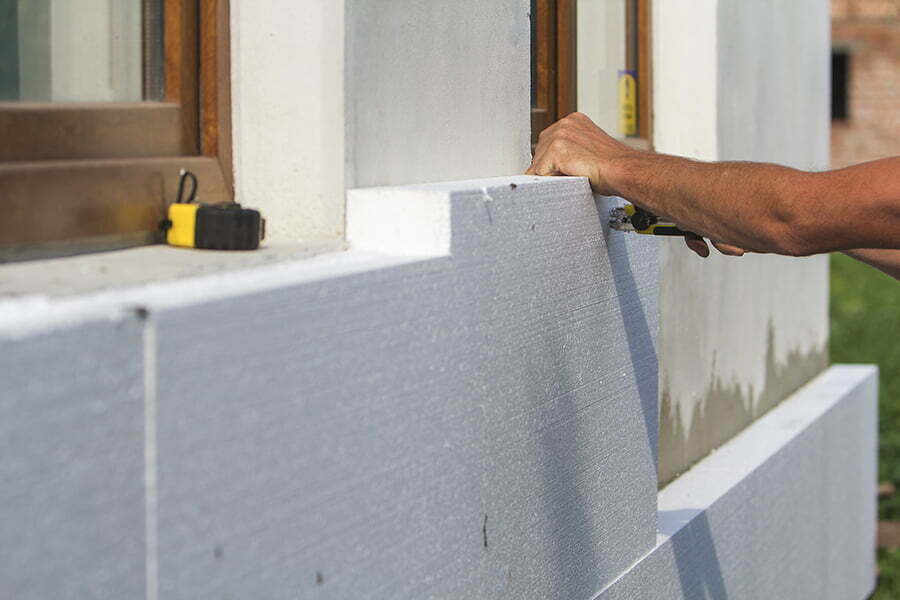
One of the key advantages of waterproof polymer insulation is that it can be applied in various ways, depending on your specific needs. For example, spray foam insulation is ideal for filling gaps and hard-to-reach areas where traditional materials may not fit properly.
On the other hand, rigid board insulation provides excellent thermal resistance and can be used in walls or roofs.
In this case, we decided to use blown-in cellulose fiber made from recycled paper products treated with a special coating that makes them resistant to water damage. This type of waterproof polymer insulation was perfect for our client’s building because it could easily fill all cavities without leaving any gaps or voids while providing superior protection against moisture infiltration.
The installation process was quick and efficient thanks to our experienced team who knew how to handle this innovative material correctly. The result? A dry and comfortable living space free from mold growth with lower energy bills due to reduced heat loss through walls.
When considering insulating your building against moisture infiltration or heat loss issues, waterproof polymer Insulation will provide long-lasting benefits if installed by professionals using appropriate application techniques tailored specifically towards your property’s requirements!
Benefits for Building Structures
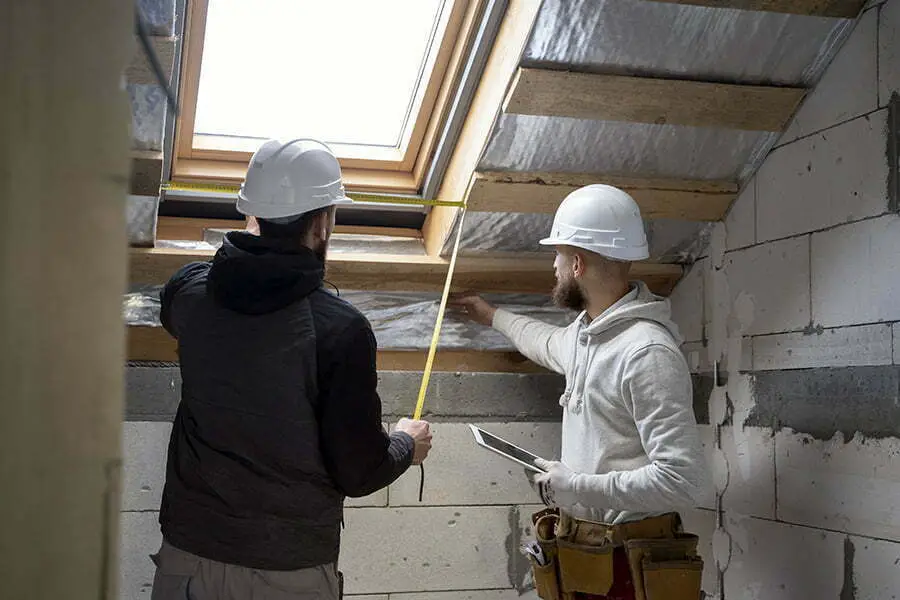
Not only does waterproof polymer insulation protect your building from moisture and heat loss, but it also provides several benefits for the structure itself. Unlike traditional insulation materials that can settle over time, creating gaps and reducing their effectiveness, polymer insulation maintains its shape and density for the life of the building.
This means that your walls will remain structurally sound without any sagging or settling. As I explained to my client on that rainy day, using waterproof polymer insulation would solve their current problem and provide long-term benefits for their building’s structural integrity.
They were relieved to hear this news as they had been worried about potential damage caused by moisture infiltration. In addition to maintaining structural integrity, waterproof polymer insulation is fire-resistant and has a high R-value (a measure of thermal resistance).
This means it can help reduce energy costs by keeping buildings cooler in summer months while retaining warmth during winter months. Choosing a high-quality insulating material like waterproof polymer is an investment in both short-term comfort and long-term protection against costly repairs due to water damage or heat loss.
Cost-effectiveness Analysis

After assessing the client’s building, I recommended waterproof polymer insulation as a solution to their moisture and heat loss problems. However, they were concerned about the cost of this innovative material compared to traditional insulation options.
To address their concerns, we conducted a cost-effectiveness analysis that took into account not only the initial installation costs but also long-term savings in energy bills and maintenance expenses. The results showed that waterproof polymer insulation may have slightly higher upfront costs than traditional materials. However, it provides significant long-term benefits such as improved energy efficiency and reduced maintenance needs.
In fact, studies have shown that buildings with proper insulation can save up to 21% on heating and cooling costs annually. Since waterproof polymer is resistant to moisture infiltration which can cause structural damage over time; it reduces repair or replacement expenses for damaged walls or floors caused by water seepage.
Overall our analysis proved that investing in high-quality waterproof polymer insulation was more cost-effective in terms of overall lifetime value than using cheaper alternatives like fiberglass or cellulose insulations which are prone to mold growth when exposed to moisture leading them needing frequent replacements due damages caused by molds.
Maintenance and Durability
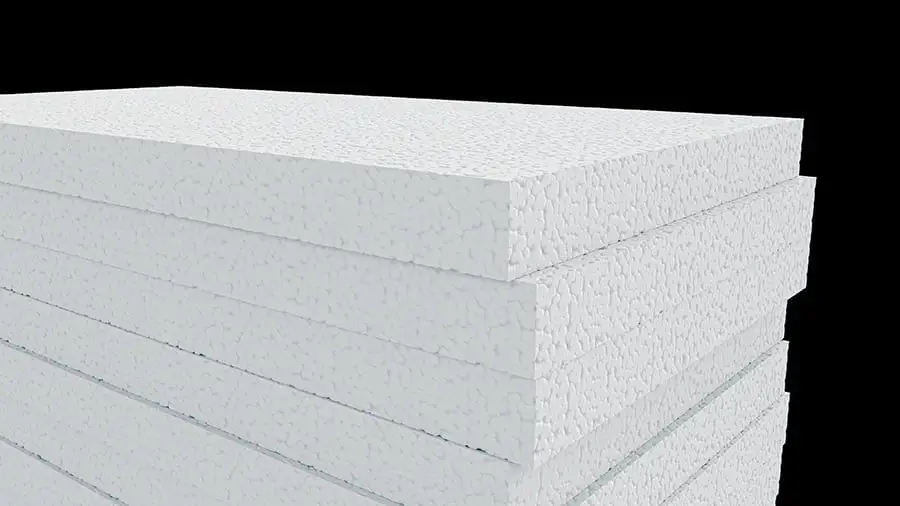
When I suggested waterproof polymer insulation to my client, they were skeptical. They had never heard of it before and were unsure if it was worth the investment.
However, after explaining its benefits and how it could solve their moisture problem for good, they decided to give it a try.
One of the things that impressed them most about this type of insulation was its durability and low maintenance requirements. Unlike traditional materials that can break down over time due to exposure to moisture or pests, waterproof polymer insulation is designed for long-term use in harsh environments.
It’s also incredibly easy to maintain since no fibers or particles can be dislodged by movement or vibration within the building structure. This means less cleaning up after installation and fewer repairs needed over time.
In fact, many manufacturers offer warranties on their products because they are confident in their ability to withstand even extreme weather conditions without losing effectiveness.
Investing in waterproof polymer insulation protects your building from moisture infiltration and provides peace of mind knowing you have a durable solution with minimal maintenance needs for years ahead.
Eco-Friendly Aspects of Waterproof Polymer Insulation
Waterproof polymer insulation offers several eco-friendly aspects that make it a sustainable choice for construction projects. Firstly, many waterproof polymers used in insulation are made from recycled materials, reducing the demand for new resources and minimizing waste.
These polymers can be manufactured using energy-efficient processes that have lower carbon emissions compared to traditional insulation materials.
Furthermore, waterproof polymer insulation has excellent durability and longevity. This means that buildings insulated with these materials require less maintenance and replacement over time, resulting in reduced material consumption and waste generation.
Moreover, the thermal efficiency of waterproof polymer insulation helps to reduce energy consumption in buildings by minimizing heat loss or gain through walls or roofs. By improving the overall energy efficiency of a building’s envelope, this type of insulation reduces reliance on heating or cooling systems powered by fossil fuels.
Lastly, some types of waterproof polymer insulations are free from harmful chemicals such as CFCs (chlorofluorocarbons) which contribute to ozone depletion. This ensures a healthier indoor environment while also protecting our planet’s ozone layer.
Application Limitations and Challenges in Waterproof Polymer Insulation
Like any construction material, it also has its limitations and challenges that need to be considered. One of the main limitations is the requirement for proper surface preparation before application.
The substrate must be clean, dry, and free from any contaminants to ensure optimal adhesion of the waterproof polymer insulation.
Another challenge is ensuring a consistent thickness during application. It requires skilled workers who are experienced in applying this type of insulation to achieve uniform coverage across all surfaces.
Inadequate thickness can compromise its effectiveness as a barrier against moisture infiltration.
Furthermore, while waterproof polymer insulation provides excellent resistance against water penetration when properly installed, it may not perform well under extreme conditions such as prolonged exposure to high temperatures or UV radiation without additional protective coatings or treatments.
Lastly, compatibility with other building materials should also be taken into account during installation. Some polymers may have chemical reactions with certain substrates or incompatible sealants used in conjunction with them.
Comparing Waterproof Polymer Insulation With Alternatives
One popular choice is waterproof polymer insulation. Let’s compare this innovative solution with some of its alternatives.
Traditional insulation materials like fiberglass and mineral wool have been widely used for many years. While they offer decent thermal performance, they can absorb moisture over time, leading to reduced effectiveness and potential mold growth.
These materials may require additional vapor barriers or membranes to provide adequate protection against water infiltration.
On the other hand, waterproof polymer insulation offers several advantages over traditional options. Firstly, it is specifically designed to resist water absorption effectively while maintaining its insulating properties even when exposed to moisture for extended periods of time.
Moreover, compared to other alternatives such as spray foam insulation or rigid foam boards made from polystyrene or polyurethane foams – which can be prone to degradation under certain conditions – waterproof polymer insulation demonstrates superior durability and longevity.
Another significant advantage of using waterproof polymer insulation is its versatility in application methods. It can be easily sprayed onto surfaces or injected into cavities without requiring extensive labor-intensive installation processes commonly associated with other types of insulations.
Furthermore, unlike some alternative solutions that may contain harmful chemicals like volatile organic compounds (VOCs), formaldehyde-based binders or flame retardants; high-quality waterproof polymers are often free from these substances making them a safer option for both installers and occupants alike. Waterproof polymer insulation stands out among alternative choices due to its resistance against water absorption, durability, versatility in application methods, and eco-friendly characteristics.
Regulations and Standards for Waterproof Polymer Insulation
Various organizations have established guidelines to ensure that these materials meet specific requirements.
One such organization is the International Code Council (ICC), which develops building codes widely adopted by many countries. The ICC’s International Building Code (IBC) includes provisions for insulation materials, including waterproof polymer insulation.
These codes outline minimum performance criteria, installation methods, fire resistance ratings, and other important factors to consider when using these materials.
There are industry-specific standards that provide further guidance on the use of waterproof polymer insulation. For example, ASTM International has developed several standards related to thermal insulating materials used in buildings.
ASTM C578 provides specifications for rigid cellular polystyrene thermal insulation boards commonly used as exterior sheathing or interior basement wall systems.
It is essential for builders and contractors to familiarize themselves with these regulations and standards before selecting or installing any type of waterproof polymer insulation material.
Case Studies: Successful Use of Waterproof Polymer Insulation in Construction
These real-life examples demonstrate the effectiveness and benefits of incorporating this innovative material into building designs.
In one case study, a commercial office building in a coastal area was experiencing significant moisture infiltration issues. Traditional insulation methods were unable to effectively address the problem, leading to mold growth and compromised indoor air quality.
By implementing waterproof polymer insulation throughout the structure, not only was moisture intrusion eliminated but also energy efficiency improved significantly.
Another case study involved a residential development located in an area with extreme temperature fluctuations. The use of waterproof polymer insulation helped maintain stable indoor temperatures by preventing heat loss during colder months and minimizing heat gain during hotter periods.
This resulted in reduced energy consumption for heating and cooling systems, leading to substantial cost savings for homeowners.
Furthermore, a large-scale industrial facility faced challenges related to condensation buildup on its walls due to high humidity levels within certain areas of production processes. Waterproof polymer insulation proved instrumental in mitigating these issues by providing an impermeable barrier against moisture ingress while maintaining thermal performance.
These case studies highlight how incorporating waterproof polymer insulation can effectively safeguard buildings against both moisture infiltration and heat loss concerns across various construction types – from commercial structures to residential developments or industrial facilities alike.
FAQ
What type of insulation is waterproof?
The type of insulation that is waterproof is closed-cell spray foam.
Is there a waterproof foam insulation?
Yes, only higher-density closed-cell foam insulation is truly waterproof.
Is polystyrene insulation waterproof?
Yes, polystyrene insulation, more specifically expanded polystyrene, is waterproof as it is resistant to water and moisture.
What is the best insulation for wet areas?
The best insulation for wet areas is non-organic, vapour permeable insulation like stone wool due to its excellent drying potential.
Do all polymer-based insulation offer water resistance?
No, not all polymer-based insulation offers water resistance as it relies heavily on the specific type of polymer used and its processing.
How effective are spray foam insulations in preventing moisture infiltration?
Spray foam insulations are highly effective in preventing moisture infiltration due to their superior sealing properties and resistance to water.
Does insulation made from Polyvinyl Chloride (PVC) provide waterproof capabilities?
Yes, insulation made from Polyvinyl Chloride (PVC) provides waterproof capabilities.
Recap
